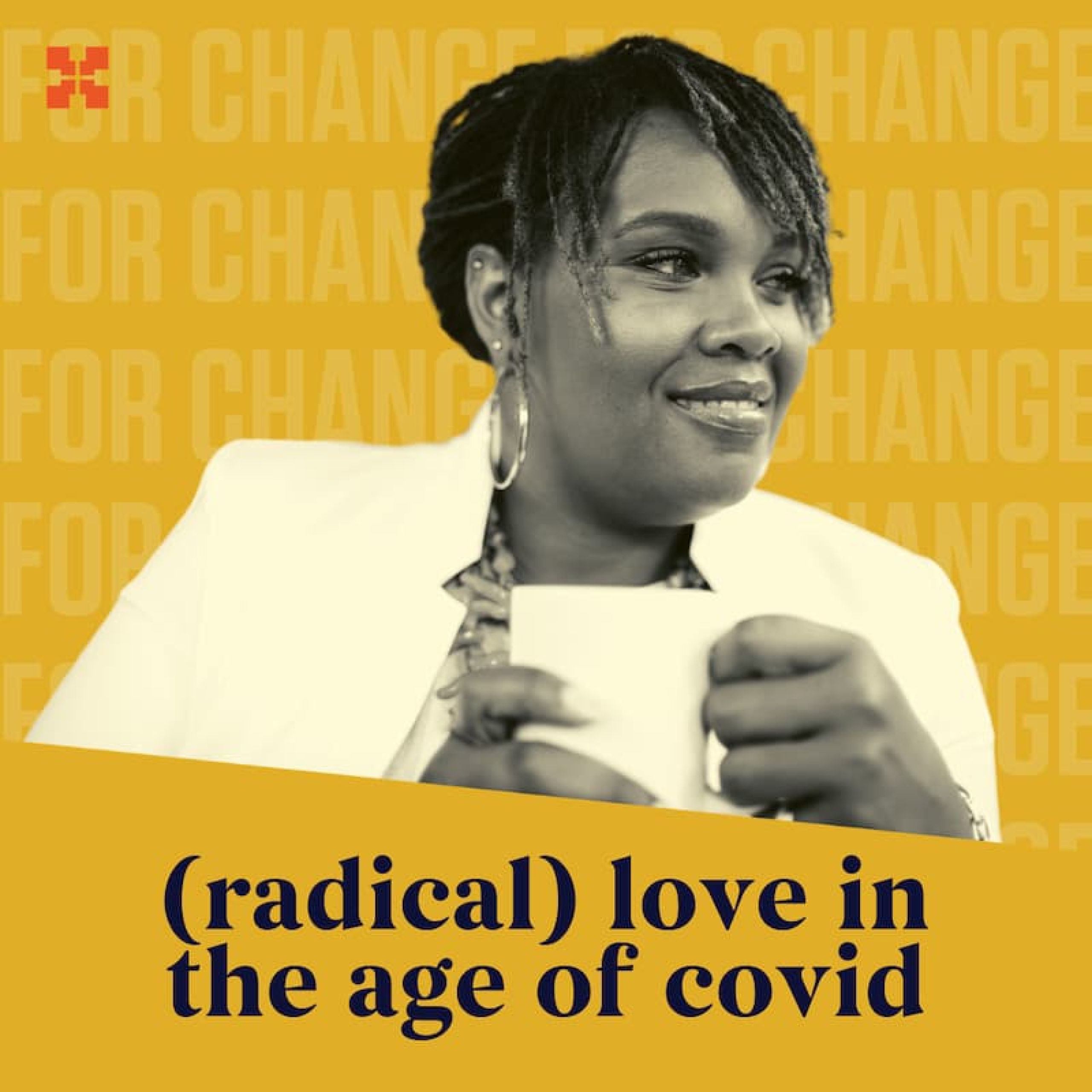Listen To Our Lastest Podcast

Written for Xavier University of Louisiana, The Center for Equity, Justice, and the Human Spirit by Takema Robinson
Today as I sat down to write, I sat with the day’s headlines flashing across my phone during back to back Zoom calls:
A call that a colleague’s step-father’s cancer metastasized;
A family friend lost her brother to COVID;
Another friend’s husband lost his mother on Mother’s Day;
The daily NOLAREADY text messages – X new cases, X deaths, STAY INSIDE;
Scenes on the evening news of an overcrowded Denver cafe on Mother’s Day, contrasted with New Orlean officials’ announcement of plans to reopen the city. No one in that restaurant was wearing a mask, leaving me to question:
“What does it mean to harness (radical) love in the age of COVID?”
Sitting with this question, a few thoughts come to mind prompted by my study of bell hooks, a radical Black feminist love warrior and scholar:
- RADICAL IMAGINATION
“Love is as love does. Love is an act of will–namely, both an intention and an action.”
We must mourn and re-imagine. Mourn our loved one’s and mourn an expectant future interrupted and uncertain. We mourn to honor the deceased and we mourn our own hopes and dreams that may be on pause for the foreseeable future. It is from this process, that we must reflect on our ancestors, those who were able to overcome indescribable abuse, while imagining freedom. Ancestors whose “radical imagination” envisioned the possibilities we have now achieved. We are the products of our ancestors’ radical imagination and even in this time of despair it is our calling to create a new vision of the future.
- RADICAL VULNERABILITY
“The heart of justice is truth telling, seeing ourselves and the world the way it is rather than the way we want it to be. More than ever before we, as a society, need to renew a commitment to truth-telling.”
We must sit with the truth of our interconnectedness and the discomfort of our inherent vulnerability. What we now must admit is that our destiny is dependent, contingent, and even predicated on one another. We are our brothers and sisters keepers – LITERALLY. I like to believe that this revelation of interconnectedness and “radical vulnerability” could lead to a deeper recognition of our shared humanity that can inspire us to build collective power committed to creating equity and justice. Like Sister Angela Glover Blackwell once said when she said what she said, “equity is the superior growth model.”
- RADICAL SELF-CARE
“We do not have to love. We choose to love…When we understand love as the will to nurture our own and another’s spiritual growth, it becomes clear that we cannot claim to love if we are hurtful and abusive. Love and abuse cannot coexist.”
Lastly, today, like the last 59 days, I have sat with this concept of “radical self-care”. Yeh, I’d love a mani/pedi and ohhhh, I can’t wait until I get my locs re-tightened. But what this pandemic has taught me is that self-care is so much deeper than self-pampering. Self-care is literally “putting your mask on first.” Self-care is social distancing – we take care of ourselves by staying away, so we can be together. Self-care is also checking in with ourselves and asking for what we need on days like this when the news is bad and you can’t hug your friend.
Like it was once said, “You are Magic, but you are also Human.” Maybe it’s our deep humanity where the real magic lies, where love lies, where freedom lies.
“Redeemed and restored, love returns us to the promise of everlasting life. When we love we can let our hearts speak.”